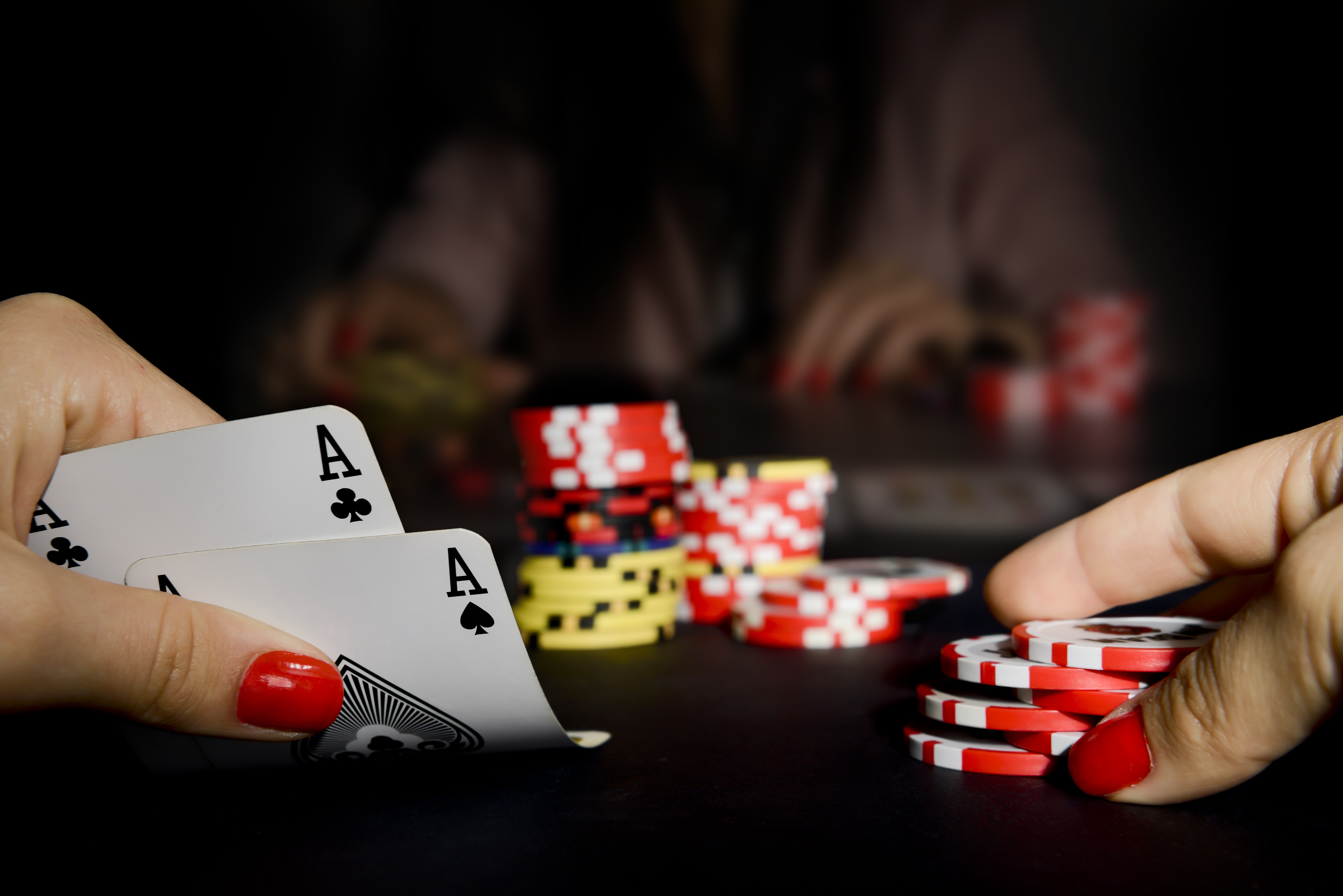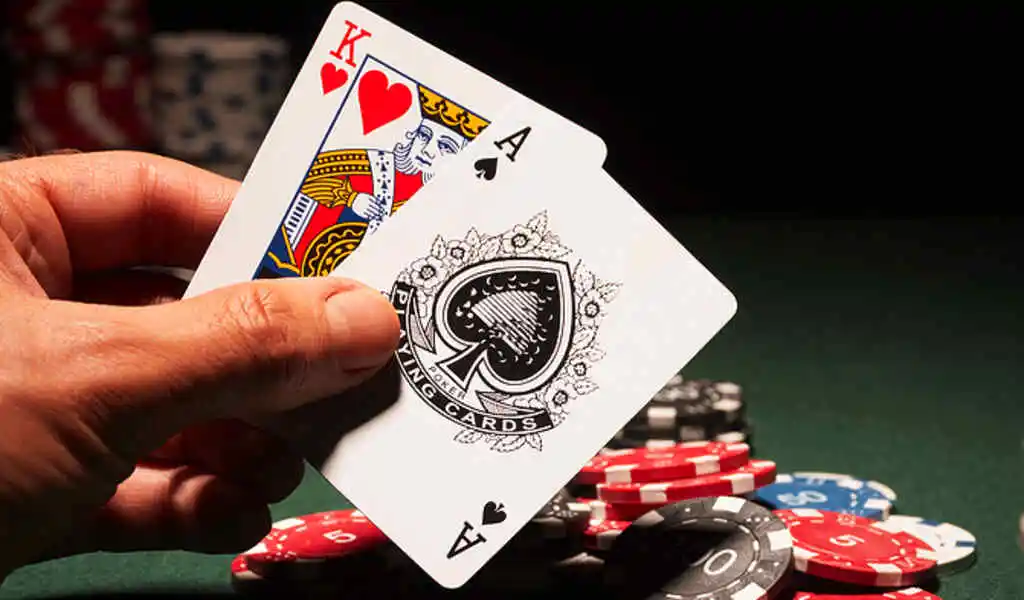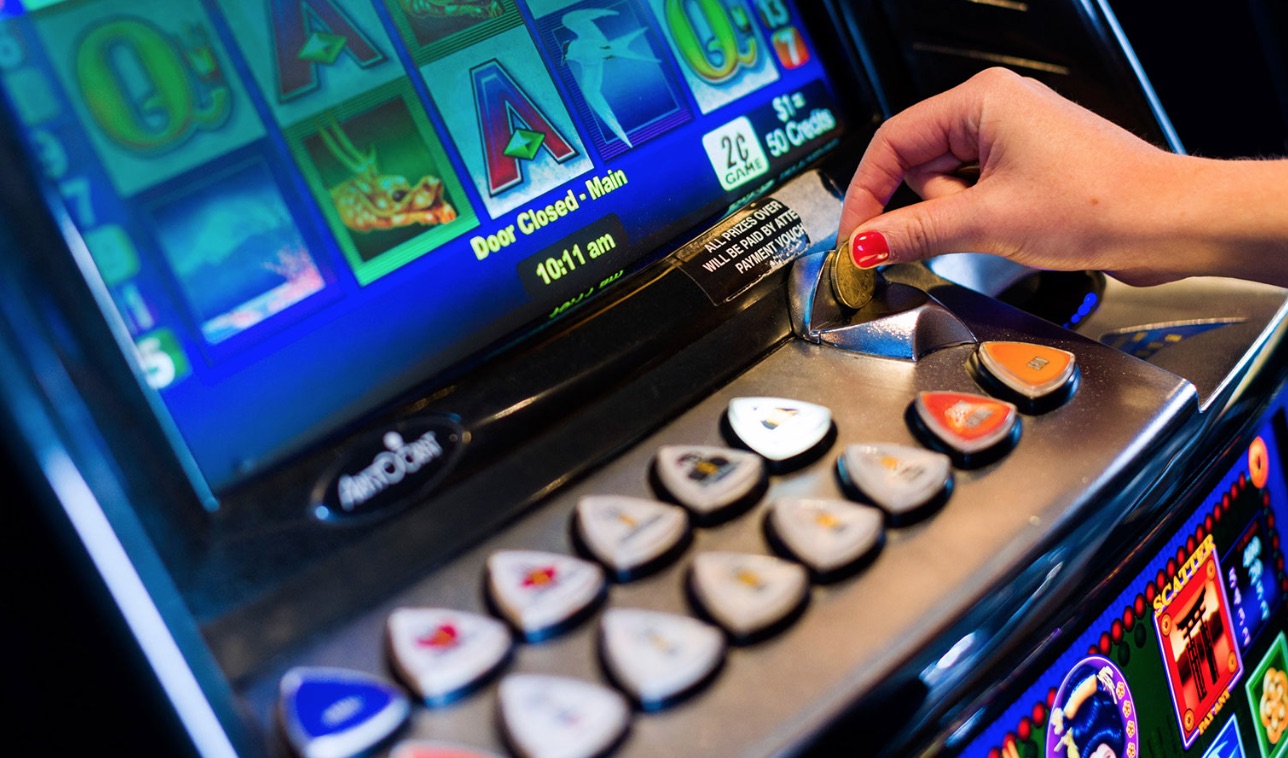Introduction
How To Be A Poker Dealer: Becoming a poker dealer can be an exciting endeavor for those who have a passion for the game and enjoy working in a fast-paced and dynamic environment. As the facilitators of the game, poker dealers play a crucial role in ensuring fair play, maintaining the flow of the game, and providing an enjoyable experience for players. Whether you aspire to deal in a professional casino setting or want to host friendly home games, learning the skills and acquiring the knowledge necessary to be a proficient poker dealer is essential.
This guide will provide you with valuable insights into the steps and considerations involved in becoming a poker dealer. From mastering the rules of the game and practicing dealing techniques to acquiring customer service skills and gaining practical experience, this comprehensive guide will set you on the path to success in the world of poker dealing. So, let’s delve into the fascinating realm of poker dealing and explore how you can embark on this rewarding journey.

What are the duties of a poker dealer?
A poker dealer oversees poker games at a casino or tournament and keeps gameplay moving. Their job duties are to shuffle the deck, deal cards to the players, turn over community cards, and collect folded hands.
The duties of a poker dealer include:
1. Shuffling and Dealing Cards: A poker dealer is responsible for shuffling the deck of cards thoroughly and distributing them to the players in the designated order. They ensure fair and random card distribution to maintain the integrity of the game.
2. Collecting Bets: The dealer collects and manages the bets placed by the players, ensuring that the proper betting procedures are followed. They monitor the betting actions, including raises, calls, and folds, and accurately determine the amount of chips in the pot.
3. Enforcing Game Rules: It is the dealer’s responsibility to enforce the rules of the poker game and maintain a fair and orderly gaming environment. They ensure that players follow the proper betting procedures, act in turn, and adhere to the established rules and regulations of the specific poker variant being played.
4. Facilitating Gameplay: The dealer manages the flow of the game, ensuring that it progresses smoothly and efficiently. They announce the actions, such as the start of a new hand, the opening of the betting rounds, and the resolution of each hand. They also assist in resolving any disputes or misunderstandings that may arise during the game.
5. Maintaining Table Etiquette: The dealer ensures that players conduct themselves appropriately at the poker table, following the established etiquette. They promote a respectful and professional atmosphere by enforcing rules regarding player behavior, such as discouraging offensive language, excessive celebration, or disruptive actions.
Is it hard to deal poker?
Poker dealers must have good communication skills. Interacting with players is part of the job, and good communication skills are the foundation of being a good dealer. The majority of the players are polite and easy to deal with, but you’ll also find players who are mean, rude, drunk, abusive, and often obnoxious.
Dealing poker can be challenging, especially for those who are new to it. It requires a combination of skills and knowledge to effectively manage the game and provide a smooth and enjoyable experience for the players. Here are some factors that can make dealing poker challenging:
1. Game Knowledge: A poker dealer needs to have a strong understanding of the rules, procedures, and various poker variants. They should be familiar with the hand rankings, different betting rounds, and the specifics of each game variation. Having a solid foundation in poker knowledge is essential for dealing accurately and resolving any issues that may arise during gameplay.
2. Speed and Accuracy: Dealing poker requires quick thinking and the ability to handle multiple tasks simultaneously. Dealers must efficiently shuffle and distribute cards, collect and manage bets, and keep track of the pot size and betting actions. Being able to perform these tasks accurately and in a timely manner is crucial to maintain the flow of the game.
3. Customer Service Skills: Dealing poker involves interacting with players, managing their requests, and resolving any conflicts or disputes that may occur. Dealers need good communication and customer service skills to handle player interactions professionally and ensure a positive experience for everyone at the table.
4. Focus and Concentration: Poker games can be intense and fast-paced, requiring dealers to stay focused and alert throughout their shift. They must pay attention to the action at the table, monitor players’ actions, and be vigilant for any potential rule violations or irregularities. Maintaining concentration is essential to avoid mistakes and ensure the integrity of the game.
While dealing poker can be challenging, with practice, experience, and a strong knowledge of the game, individuals can become proficient and handle the demands of the role effectively. Ongoing learning and refinement of skills are necessary to become a skilled and successful poker dealer.
What do you call a poker dealer?
A croupier or dealer is someone appointed at a gambling table to assist in the conduct of the game, especially in the distribution of bets and payouts. Croupiers are typically employed by casinos.
A poker dealer is commonly referred to as a “dealer” or “poker dealer.” Additionally, they may be called a “cardroom dealer” or “casino dealer” if they work in a professional cardroom or casino setting. In some cases, dealers may also be addressed as “croupiers,” although this term is more commonly associated with casino table games such as roulette or blackjack. The specific title may vary depending on the establishment and region, but “dealer” is the most commonly used term to refer to someone responsible for dealing cards and managing the poker game.
In addition to the general terms “dealer” or “poker dealer,” there are a few other specific terms that may be used to refer to a poker dealer:
1. Cardroom Employee: This term is used to describe individuals who work in a cardroom or poker room and perform various roles, including dealing cards. It is a more inclusive term that encompasses all employees involved in running the cardroom.
2. Chipper: In some informal settings or among poker players, a dealer may be casually referred to as a “chipper.” This term originates from the fact that dealers often handle and distribute chips during the game.
3. Floorman: A floorman is a higher-ranking employee in a poker room who oversees the operations and ensures the smooth running of the games. While they are not the dealers themselves, they are responsible for managing the dealers and addressing any issues or disputes that arise during gameplay.
4. Boxman: In certain poker rooms or casinos, the person overseeing the game and managing the dealer is referred to as the “boxman.” They ensure that the game runs smoothly, handle any discrepancies, and act as a liaison between the players and the management.
It’s important to note that the specific terms used to refer to a poker dealer may vary across different regions and establishments. The primary and most widely recognized term remains “dealer.”

How do I be the dealer for poker?
The most popular way to become a poker dealer is to complete a 4-8 week training course and then apply for a vacant position at a land-based casino. If you already have some experience in the industry (as a player or dealing home games), then you can visit your local casino and start to learn on the job.
To become a poker dealer, you can follow these general steps:
1. Learn the Game: Familiarize yourself with the rules, hand rankings, and various poker variants. Understand the betting structure, different rounds of play, and common terminology used in poker.
2. Practice Dealing: Obtain a deck of cards and practice shuffling and dealing. Focus on mastering the proper techniques for distributing cards to ensure fairness and accuracy. Practice dealing from different positions, such as dealing from the button or dealing in a full-ring game.
3. Study Poker Procedures: Learn the standard procedures followed by dealers in poker games. This includes understanding how to handle the blinds, manage the pot, collect and manage bets, and announce the actions during each betting round.
4. Acquire Training or Certification: Consider enrolling in a poker dealer training program or seeking certification from a reputable organization. These programs provide comprehensive training on dealing techniques, game procedures, and customer service skills.
5. Gain Experience: Seek opportunities to gain practical experience as a dealer. This can be done by volunteering at local charity poker events, applying for entry-level positions at poker rooms or casinos, or joining dealer training programs that offer hands-on experience.
How many cards does the dealer deal in poker?
Every player is dealt two cards, for their eyes only. The dealer spreads five cards – three at once, then another, then another – which can be used by all players to make their best possible five-card hand.
In most standard poker games, the dealer initially deals each player a certain number of cards, depending on the variant being played. Here are the typical numbers of cards dealt in popular poker variants:
1. Texas Hold’em: Each player is dealt two private cards, known as “hole cards” or “pocket cards.” These cards are dealt face-down and are exclusive to each player.
2. Omaha Hold’em: Each player is dealt four private cards face-down. From these four cards, players must use two of their hole cards in combination with three community cards to make the best possible hand.
3. Seven-Card Stud: In Seven-Card Stud, players receive a total of seven cards. Each player is dealt three cards: two face-down (hole cards) and one face-up (door card). This is followed by three more face-up cards and one final face-down card, with betting rounds in between.
4. Five-Card Draw: Each player is dealt five private cards face-down. Players then have the option to discard and replace some or all of their cards through a draw round.
5. Three-Card Poker: In Three-Card Poker, each player and the dealer are dealt three cards face-down. Players aim to make the best three-card hand, competing against the dealer’s hand.
It’s important to note that there are many variations of poker, and the number of cards dealt may vary depending on the specific variant being played. Additionally, in community card games like Texas Hold’em and Omaha, additional community cards are dealt that are shared by all players in combination with their hole cards.
What are the key skills and knowledge required to become a successful poker dealer?
To become a successful poker dealer, several key skills and knowledge areas are essential. These include:
1. Game Knowledge: A deep understanding of the rules, hand rankings, and different poker variants is crucial. Familiarize yourself with common terminology, betting structures, and procedures specific to each game variation.
2. Dealing Techniques: Master the art of shuffling, distributing cards smoothly, and handling chips. Practice accuracy and speed to maintain the flow of the game while ensuring fair and consistent dealing.
3. Math Skills: Develop strong mental math abilities to calculate pot sizes, manage bets, and determine winning payouts. Quick and accurate calculations are essential for maintaining game integrity.
4. Focus and Concentration: Stay attentive and focused throughout the game. Maintain awareness of the action, monitor player behavior, and identify any irregularities or rule violations.
5. Communication and Customer Service: Excellent interpersonal skills are vital for interacting with players professionally. Clear communication, active listening, and the ability to resolve conflicts or disputes effectively contribute to a positive gaming experience.
What steps can one take to gain practical experience as a poker dealer?
To gain practical experience as a poker dealer, consider the following steps:
1. Volunteer at Local Events: Look for local charity poker tournaments, fundraisers, or community events that need volunteer dealers. This provides an opportunity to practice dealing in a real poker setting and gain hands-on experience.
2. Join Dealer Training Programs: Enroll in dealer training programs or courses offered by reputable organizations or poker schools. These programs often include practical training sessions where you can practice dealing under the guidance of experienced instructors.
3. Seek Entry-Level Positions: Apply for entry-level positions at local cardrooms, poker rooms, or casinos. These establishments may have openings for beginner-level dealers or offer dealer training programs. Starting in a lower-stakes environment allows you to gradually build your skills and confidence.
4. Organize Home Games: Host friendly home games with friends or fellow poker enthusiasts. Take turns dealing and rotating the dealer position. This provides a low-pressure environment to practice your dealing skills while enjoying the game with familiar faces.
5. Attend Poker Dealer Auditions: Some casinos or cardrooms may hold dealer auditions or hiring events. Keep an eye out for such opportunities and prepare to showcase your skills. These auditions often involve demonstrating your dealing proficiency and knowledge of poker rules and procedures.
How important is customer service in the role of a poker dealer, and how can one develop excellent customer service skills?
Customer service is highly important in the role of a poker dealer. Here’s why:
1. Player Experience: As a poker dealer, you are responsible for creating a positive and enjoyable gaming experience for players. Excellent customer service enhances player satisfaction, encourages repeat visits, and promotes a friendly and welcoming atmosphere at the table.
2. Conflict Resolution: Dealing with different personalities and potential disputes is part of the job. Strong customer service skills enable you to handle conflicts calmly, defuse tense situations, and find fair resolutions that satisfy all parties involved.
3. Professionalism and Etiquette: Demonstrating professionalism through courteous and respectful behavior is essential. Treating all players equally, maintaining a positive attitude, and displaying good table etiquette contribute to a pleasant gaming environment.
To develop excellent customer service skills as a poker dealer, consider the following:
1. Communication Skills: Enhance your verbal communication skills by speaking clearly, using appropriate tone and volume, and actively listening to players’ needs and concerns. Effective communication promotes understanding and helps build rapport.
2. Empathy and Patience: Show empathy towards players, understanding that they have different skill levels and may experience frustrations or losses. Patience is key when dealing with various personalities and handling requests or inquiries.
3. Conflict Resolution Training: Seek training or resources on conflict resolution techniques. Learn how to remain calm, diffuse tensions, and find mutually beneficial solutions when conflicts arise at the table.
4. Continuous Learning: Stay updated on poker industry trends, game variations, and etiquette standards. Expand your knowledge to provide accurate information and answer player questions confidently.
5. Practice Good Table Presence: Maintain a professional appearance, follow dress codes, and observe proper hygiene. A well-presented dealer conveys professionalism and sets a positive tone for the game.
Remember, excellent customer service skills are developed over time through experience, self-awareness, and a genuine desire to provide a top-notch gaming experience. By continuously refining your customer service skills, you can enhance the overall satisfaction of players and contribute to a thriving poker environment.

Conclusion
Becoming a poker dealer requires dedication, knowledge, and practice. Throughout this guide, we have explored the key steps and considerations involved in becoming a proficient poker dealer. By learning the game, practicing dealing techniques, and acquiring customer service skills, you can develop the foundation necessary to excel in this role.
Remember that continuous learning and improvement are essential. Stay updated on poker variants, industry trends, and game procedures. Seek opportunities to gain practical experience, whether through volunteering at events or applying for dealer positions.
Being a poker dealer can be an exciting and rewarding career or a fulfilling hobby. It allows you to immerse yourself in the world of poker, interact with players, and contribute to creating memorable gaming experiences.
As you embark on your journey to becoming a poker dealer, embrace the challenges, refine your skills, and never stop honing your craft. With passion, dedication, and a commitment to excellence, you can thrive in the exhilarating world of poker dealing. Good luck and enjoy the thrilling adventure ahead!










